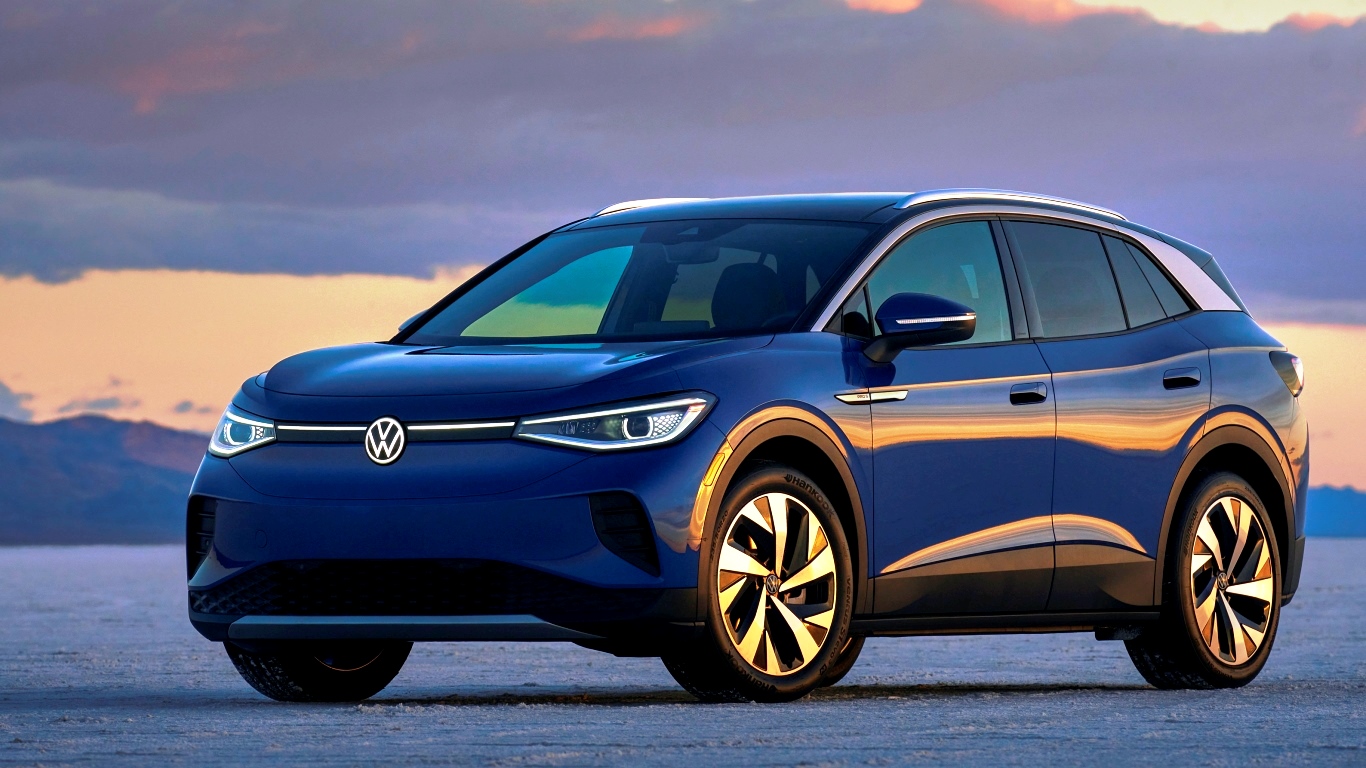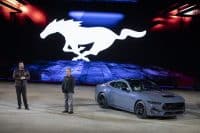
Germany’s Volkswagen sold 9.3 million vehicles in 2020, making it the world’s second-largest automaker behind Japan’s Toyota, which sold 9.5 million vehicles. Both carmakers saw double-digit declines year over year due to the coronavirus pandemic.
Last week, VW held its first Power Day event and used the opportunity to present a technology roadmap for VW’s next decade. The company’s plans include the construction of six gigafactories with a total production capacity of 240 gigawatt-hours of battery supply for the company’s planned electric vehicle (EV) production over the period. The goal is to reduce battery costs by as much as 50%, better to compete with Tesla Inc. (NASDAQ: TSLA), the EV industry’s reigning heavyweight champ.
[in-text-ad]
Analysts at Deutsche Bank liked what they heard so much that they lifted their price target on VW from €185 to €270 (about $220 to $320). The bank’s analysts were impressed both by the company’s fourth-quarter earnings and double-digit margin that, they said, showed off “how much value is embedded within the Group.”
There was more:
With its new EV sales target of 1 [million] units this year, of which the majority will be [battery electric vehicles] BEVs, VW should come very close to Tesla’s BEV sales. Moreover, with the global roll-out of [Volkswagen’s] ID.4 we see a good chance that VW could surpass Tesla’s BEV sales as soon as next year, which should increase the credit given to its EV strategy.
Tesla delivered almost 500,000 EVs last year and expects to deliver a million this year. VW delivered 231,600. The good news for Volkswagen is that it tripled its 2019 delivery total of 73,600 EVs. That has clearly given the company some confidence.
In its evaluation of VW, Deutsche Bank’s analysts said they were keeping their existing valuation model while applying a “multiple that we think the market will deem fair and introduce a blue-sky valuation of the BEV business.”
That “blue-sky” valuation is based on VW’s modular electric drive matrix (MEB) platform, which the company plans to use as the basis for a range of models, including the just-introduced ID.4 variations currently built and sold in China. Deutsche Bank values the MEB platform at €195 (about $231 million) in 2022 with an implied value of €259 million ($307 million) in 2025. That works out to €388 ($460) per share in 2022.
Deutsche Bank noted that VW’s adjusted margin in 2020 reached 12.2%, the company’s highest level of profitability in more than four years. Those profits were driven primarily by the Audi and Porsche brands. Tesla’s margin last year was 21%, primarily due to improved gross margins on the Model 3, Tesla’s lowest-priced vehicle.
In its weekly innovation newsletter, Cathie Wood’s Ark Invest had this to say about VW’s designs on the EV market:
In ARK’s view, companies with “old world DNA” are unlikely to transition quickly enough to dominate the new world. Often the difference between old and new world DNA are plans for linear as opposed to exponential growth trajectories. Tesla’s stated goal for 2030 is three terawatt-hours of annual production, 12.5 times more than VW’s 240 gigawatt-hours. In an exponential world, companies thinking linearly could be left behind.
Over the past five years, VW has posted between $13.8 billion and $16.0 billion annually on capital spending. Last November Volkswagen doubled its planned investment in digitization to €27 billion, increased its investment in EV development to €35 billion, and added €11 billion to its planned spending on creating hybrid versions of all its main models.
The total spend amounts to €86 billion ($102 billion) through 2025, roughly $20 billion a year. That’s a lot, but is it enough to pose a real threat to Tesla?
100 Million Americans Are Missing This Crucial Retirement Tool
The thought of burdening your family with a financial disaster is most Americans’ nightmare. However, recent studies show that over 100 million Americans still don’t have proper life insurance in the event they pass away.
Life insurance can bring peace of mind – ensuring your loved ones are safeguarded against unforeseen expenses and debts. With premiums often lower than expected and a variety of plans tailored to different life stages and health conditions, securing a policy is more accessible than ever.
A quick, no-obligation quote can provide valuable insight into what’s available and what might best suit your family’s needs. Life insurance is a simple step you can take today to help secure peace of mind for your loved ones tomorrow.
Click here to learn how to get a quote in just a few minutes.
Thank you for reading! Have some feedback for us?
Contact the 24/7 Wall St. editorial team.
 24/7 Wall St.
24/7 Wall St.



